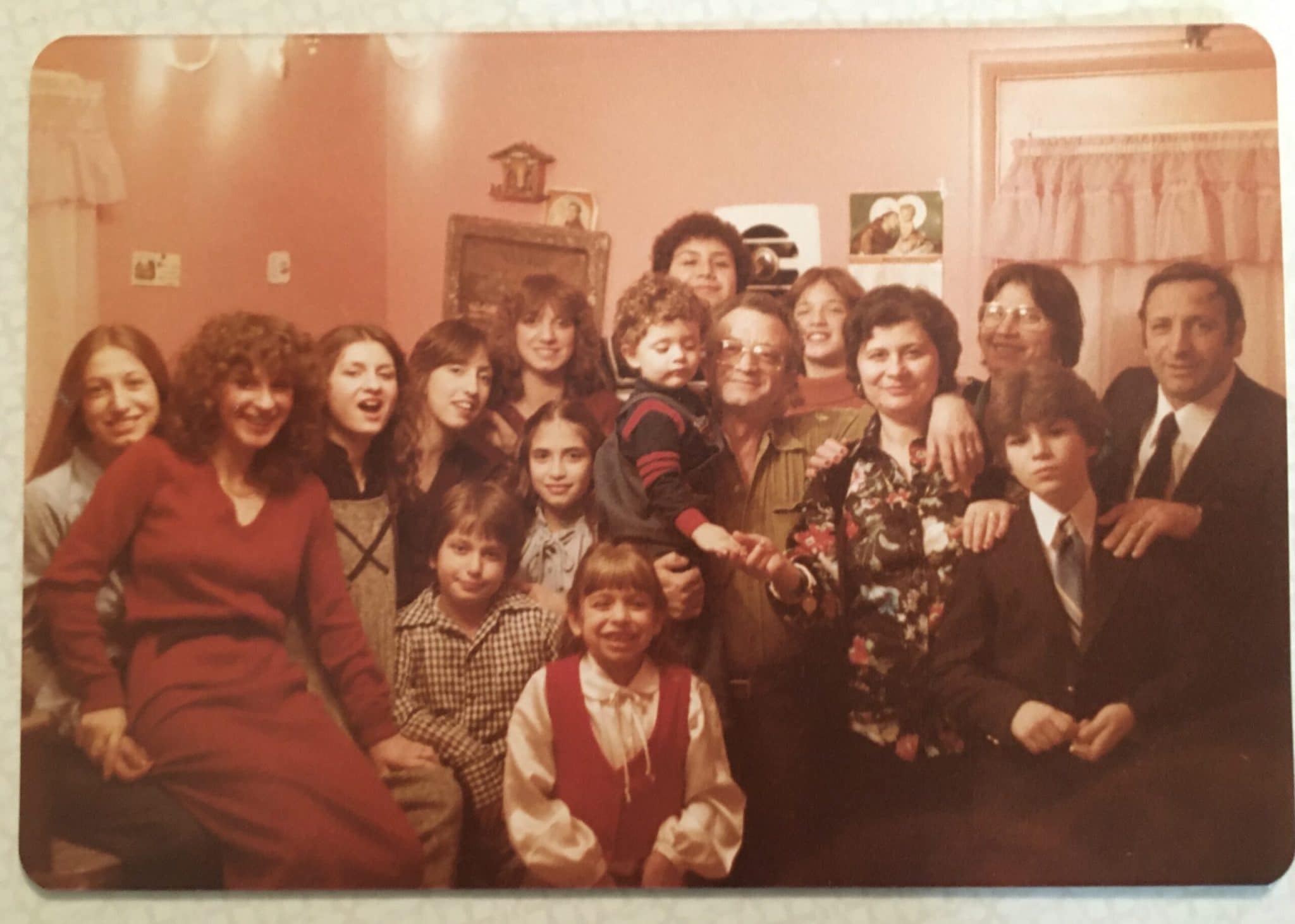Have you heard of the phrase, “Blood is thicker than water”? If you have not, spend some time with an Italian, and I am sure you will hear it come out of their mouth at least once or twice. The phrase implies that a family’s (blood) loyalty is stronger than loyalty to others (water). Famiglia “family” is at the heart of an Italian’s life. The centrality of family in an Italian’s life cannot be overstated, as it shapes daily routines, traditions, and social interactions. Family members share common interests, common ways of life, and common values. Italians have a strong sense of loyalty to one another, and the family unit is often the only social unit that is considered to be complete and forever. The most important aspect of Italian culture is the enduring significance of family, which influences both social and economic life. This is why, in general, Italians spend so much time with their family: the family represents a refuge, a secure place to live, and a source of support. Another important aspect is that the family provides emotional stability and guidance throughout an Italian’s life. The role of the family is central in Italian culture and is one of the most important to Italian society. For most Italians, family is the foundation of their identity and a source of lifelong support. The family’s strong bonds and sense of loyalty are deeply valued and maintained across generations. The Italy family structure highlights the importance of multigenerational living and balancing work with family commitments. For example, it is common for adult children to live with their parents until marriage, and for extended families to gather regularly for meals. It is unusual in Italian culture for family members to live far apart or to have infrequent contact, which contrasts with trends in some other countries. Compared to other countries, Italian family values place a greater emphasis on togetherness and interdependence. The influence of Italian family culture extends around the world, shaping perceptions of Italian identity and community globally.
Family Culture
Famiglia is one of the most essential characteristics of Italian culture and traditions. Italians are extremely family-oriented, and it is common to live with extended families such as grandparents, aunts/uncles, and cousins. Housing costs and arrangements often influence these living situations, with many young adults staying with their families longer due to high housing expenses. And if you do not live directly in the same household as your extended family, then they are no more than a walking distance from you or a 5-minute drive. Not only do Italians live in close proximity to their family, but they get together at least once a week, generally on Sundays, usually for a big dinner at someone’s house. The shared meal is a cherished tradition, serving as a central activity that brings everyone together. Food plays a significant role in these gatherings, symbolizing love, tradition, and cultural heritage. These moments are a true communal experience, where everyone participates and bonds are strengthened. Italians deeply value another’s company, finding joy in simply being together. Financial support, including money for education or daily needs, is often provided within families, reflecting strong intergenerational ties. More often than not, Italians will get together on multiple occasions throughout the week rather than just on Sundays. Occasions may be having a casual dinner, catching up about their day, celebrating birthdays, having a game night, running errands together, etc. Italians will find any excuse to celebrate an occasion in order to spend time together. The culture of family is founded upon blood and bonds. The child holds a special place in the Italian family, often receiving support and guidance throughout life. Italian children are taught to respect elders and uphold family traditions, using formal titles like ‘nonna’ and ‘nonno’ to show honor. The mother is seen as a nurturing figure, providing care and emotional support. Mothers play an emotionally central role, often acting as the heart of the family and primary caregivers. The role of a woman in the family is significant, balancing traditional expectations with modern responsibilities. Women in Italy are experiencing evolving roles, both within the family and in broader society, as attitudes and opportunities change. La famiglia is everything to Italians, and food and family gatherings hold a central role in maintaining these strong connections.
The Importance of Family Dynamics
In Italian family culture, the way family members interact and support each other is a defining feature of daily life. The concept of “la famiglia” goes far beyond the immediate household, shaping the very fabric of Italian society. Italian families are renowned for their strong sense of unity, with extended families often living in close proximity—sometimes even under one roof. This closeness fosters a unique environment where multiple generations share not only a family home but also their lives, traditions, and values.
Italian parents play a pivotal role in teaching their children the importance of respect, loyalty, and a strong work ethic from a young age. These values are considered essential in Italian culture and are passed down through generations. As children grow into adults, they are expected to remain closely connected to their family, often caring for their parents and grandparents as a natural part of adulthood. This reciprocal support system is a cornerstone of Italian family life, ensuring that no one is left without help or companionship.
Decision making within Italian families is typically a group effort, with input from parents, adult children, and even grandparents. This collaborative approach not only strengthens family bonds but also helps create lasting memories, as everyone feels valued and included. Whether it’s planning a family celebration or making important life choices, the Italian way is to involve the whole family, reinforcing the sense of belonging and togetherness.
Mealtimes are another vital aspect of Italian family dynamics. Sharing delicious meals is more than just a daily routine—it’s a cherished tradition that brings family members together. Sunday lunches, in particular, are a highlight for many families, where extended families gather to enjoy unique recipes and each other’s company. These communal experiences are filled with laughter, warm hugs, and the joy of being surrounded by loved ones, making them some of the most important aspects of Italian family life.
Even as modern times bring changes—such as young adults moving away for education or work—many Italians continue to prioritize family connections. In southern regions of Italy, it’s still common for adult children to live with their parents until marriage, reflecting the enduring importance of family dynamics. Extended families, including aunts, uncles, cousins, and especially grandparents, remain deeply involved in each other’s lives, offering emotional and practical support whenever needed.
Grandparents, in particular, hold a special place in Italian families. They are often the keepers of family history and traditions, sharing stories and wisdom with younger generations. This intergenerational exchange helps preserve the rich heritage of Italian culture and ensures that family values remain strong.
Ultimately, the family dynamic in Italy is about more than just living together—it’s about creating a supportive, loving environment where everyone can thrive. The strong sense of family bonds, respect, and loyalty that defines Italian family culture continues to shape the lives of Italians, helping them create lasting memories and maintain a vibrant, family-oriented society for generations to come.
How Getting a Dual Citizenship Can Strengthen Your Family Bond
Family expands more than just immediate family, it broadens to extended family. Getting your dual citizenship can help strengthen your family bond. Whether you are a first-generation Italian-American, or separated by multiple generations, getting your Italian citizenship will bring you closer to your Italian heritage and family. Depending on the paperwork needed for your dual citizenship, you will discover a plethora of information about your ancestry that you may not have known prior. Unearthing family history can lead to beneficial data such as genetic makeup, important figures in your family lineage, learning where and how your family came about, reconnecting with family members, and most importantly bringing you closer to Italian culture. Reconnecting with relatives in Italy becomes more meaningful as you rediscover your roots and shared heritage. In some cases, civil ceremonies may be part of the legal or cultural process of reuniting families or formalizing your status in Italy. One of the several ways of procuring your Italian citizenship is by Jure Sanguinis, known as citizenship by descent. Citizenship can be proclaimed by the paternal or maternal line depending on the generational lineage timeline. Determine your Italian dual citizenship eligibility, and learn how you can move forward with declaring your dual citizenship. After obtaining your dual citizenship, you have the capability to spend days, months, or even years in Italy and have the opportunity to reconnect and explore the towns where your family came from. Getting your dual citizenship can reestablish your family heritage and strengthen your love for Italian culture. Citizenship by descent offers this and many other benefits.
Gravitating to keep our Italian culture and family history alive is an innate feeling that transpires within all of us. As Italians, establishing an unbreakable bond with our family is one part of our culture that we cherish immensely. Being with family is central to Italians. Recognizing our culture and family history through obtaining Italian citizenship is a way to uphold Italian heritage and family bonds. At the end of the day, the blood of family is built upon love, care, and loyalty.

